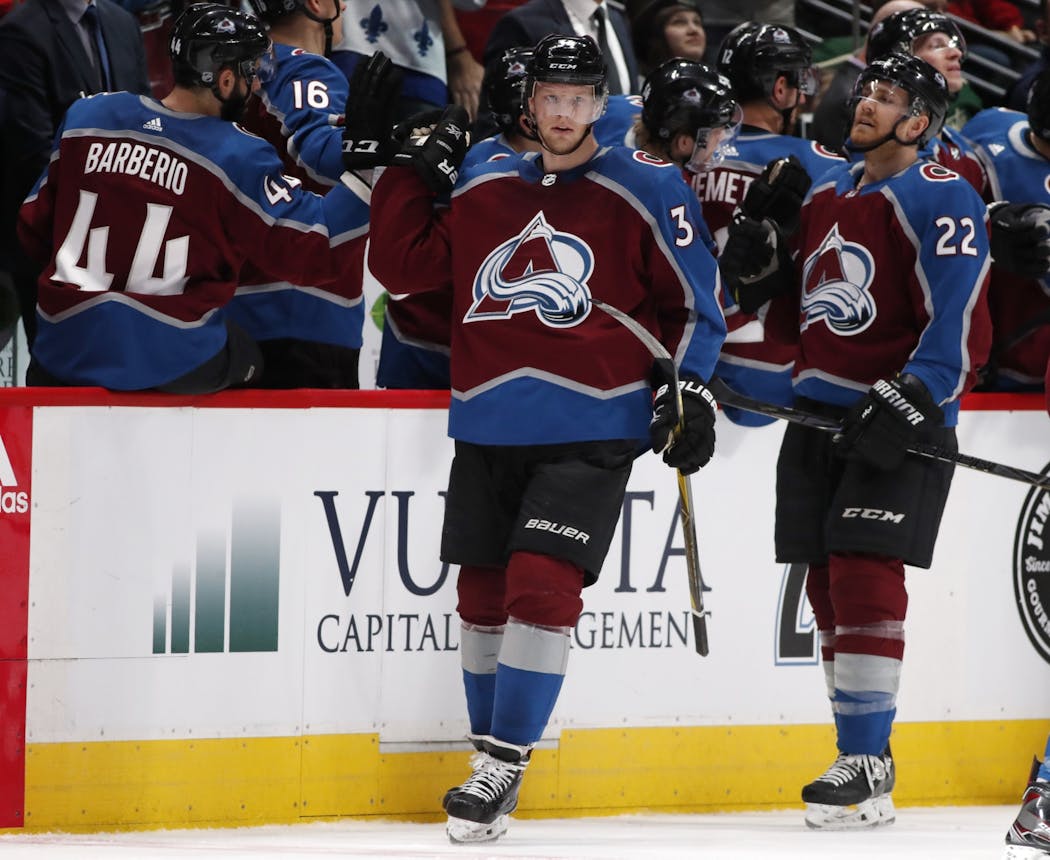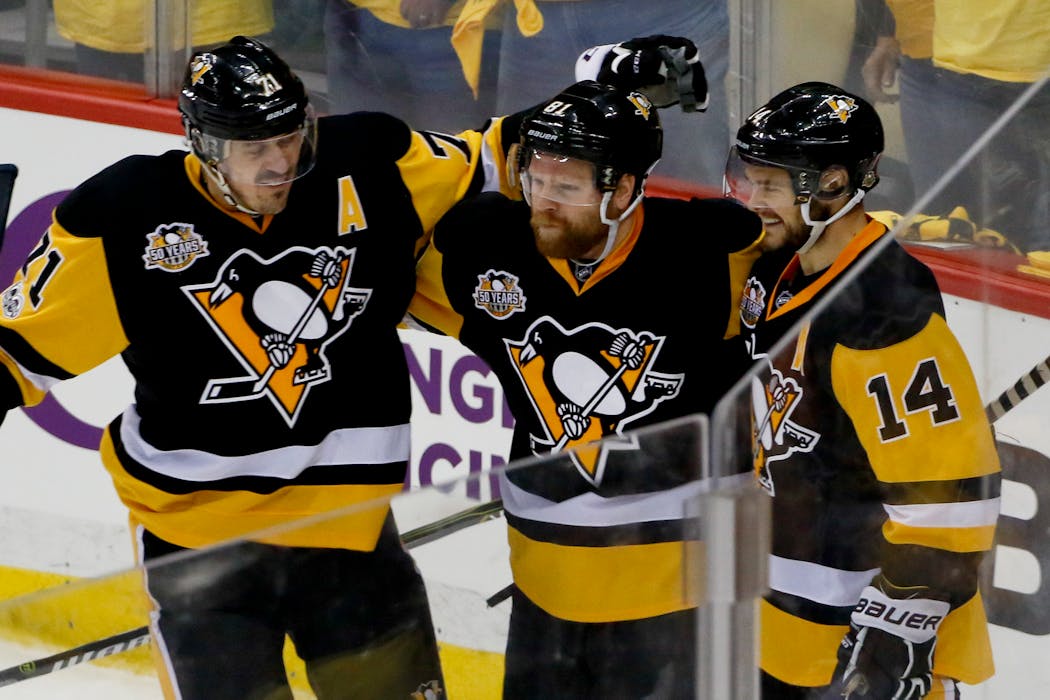When the puck lands on Wild center Joel Eriksson Ek's stick, his objective is protection and possession.
"Hold on to the puck and try to move the puck," he said.
This focus hasn't led to an outburst of offense for Eriksson Ek, but what it has done is give the Wild the man advantage and helped even up its discrepancy between power plays and penalty kills. That lopsided comparison could continue to be corrected amid more efforts like Eriksson Ek's.
"It's part of the game, drawing penalties," winger Marcus Foligno said, "and the power play is so crucial, especially if you have a good one."
The Wild's unit has been middle-of-the-pack, entering the weekend at a 19.1 percent success rate. But it has been clutch in a handful of games, with the power play delivering eight game-winning or game-tying goals before the Wild resumed play after its bye week.
Overall, though, the team's 130 penalties drawn, according to Corsica.hockey, through 46 games was dwarfed by the 173 times it had been shorthanded — the second-highest total of any NHL team.
"You can tell when you're not playing that good," coach Bruce Boudreau said. "You don't usually get any power plays. That's because you're not moving your legs. You're not making the other team have to work too hard. If we can get into that mode and make them take three or four penalties, I think it's our advantage."
A stagnant body is easy to defend, while motion — whether it be a tenacious cycle along the boards or changing direction after gaining puck possession — can create havoc.
"You wear guys down, and then people get tired and all of a sudden you're forced to take a penalty," forward Charlie Coyle said. "Puck control, taking care of that, and just moving your feet is the main thing. That's what comes to mind when I think of drawing penalties: moving your feet, be a big body and just outcompete them, outwork them."
Location is important, too.
An opponent waving a stick into a player's lane while he rushes up ice with the puck might not result in a call, even with the tighter enforcement this season on slashing. But the spotlight is much greater in front of the net and behind it — a reality that's not lost on Foligno, who has drawn a team-high 15 penalties, according to Corsica.hockey.
"I think being in the offensive zone as much as we can and cycling, having your back towards a team, kind of gets them riled," he said.
Work ethic isn't the only option, though, in a game with players continuing to get whistled for diving and embellishment. Those reputations, however, can be tough to shake.
"Refs do pay attention to it," Foligno said. "Diving and things like that can really tick off a referee, especially if they call it in your favor. And they always check the tape."
Aside from the integrity factor, there's also the risk of getting burned in a one-on-one situation — which undermines the edge a team initially might have had to be in a position to draw a penalty.
"If you're more worried about grabbing their stick and getting a hooking call against," winger Jason Zucker said, "then you're probably not making a great play yourself either."
So an alternative might be to mimic the hustle that's headlined Eriksson Ek's play. The 20-year-old drew three penalties in the team's four games before its five-day break.
Not only could that help the Wild receive more power-play opportunities, but it might reward the offense regardless of its manpower.
"You've got to go to areas that other people won't go to if you want to be a goal scorer," Boudreau said.
Short takes
• Look out for the Avalanche. Before hosting the Rangers on Saturday, Colorado had run off eight consecutive victories — its longest since another eight-game run Dec.31, 2005-Jan. 17, 2006. It already has surpassed its win and point totals from last season. The Avalanche's rise supports the theory that the Central Division is the toughest in the league, as each team has at least 20 wins and 50 points before the All-Star break.
• Debate ensued after Ducks winger Andrew Cogliano was recently suspended two games, ending his ironman streak. Cogliano had played 830 consecutive games, never sitting out since he made his NHL debut in 2007. His run was the fourth-longest in NHL history, and Cogliano was 134 games shy of tying the league record. Considering the magnitude of Cogliano's accomplishment and the fact he had never been suspended before in his career, the interference call came under scrutiny — although the lateness of the hit and contact to the head were clear.
• The injury bug keeps stinging the Rangers. With defenseman Marc Staal and forwards Kevin Hayes and Chris Kreider already sidelined, defenseman Kevin Shattenkirk will be out indefinitely because of a meniscus tear in his left knee. New York has been able to remain in pursuit of a playoff spot amid these absences; it held on to a wild-card spot entering Friday's slate of games, but losing a lineup mainstay in Shattenkirk certainly hurts.
WILD'S WEEK AHEAD
Monday: 7 p.m. vs. Ottawa
Thursday: 6 p.m. vs Pittsburgh
Both games on FSN
Player to watch: Phil Kessel, Penguins
The Penguins' leading scorer entering play Saturday recently notched his 700th career point. He is ranked among the top producers in the league this season, with 21 goals and 54 points.
VOICES
"We are going to have to earn our way there by winning games, not by hoping other teams lose games. There's too many games going on with too many good teams. To expect we're going to get help every night, it's just not going to happen."
Goalie Devan Dubnyk on the Wild controlling its playoff destiny.
Sarah McLellan covers the Wild and NHL hockey for the Star Tribune.



